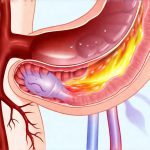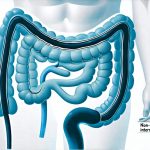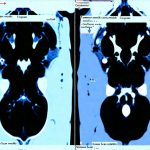Many people experience discomfort in their digestive system, often using terms like ‘bloating’ and ‘indigestion’ interchangeably. While both can cause unpleasant symptoms – feelings of fullness, abdominal pressure, gas, and general unease – they aren’t necessarily the same thing. Understanding the nuances between these two common experiences is crucial for identifying potential triggers, managing symptoms effectively, and knowing when to seek further evaluation. Simply treating everything as ‘just indigestion’ might mask a more specific underlying issue or delay appropriate care.
The digestive system is a complex network, and disruptions can manifest in numerous ways. Bloating often stems from excessive gas production or difficulty eliminating it, leading to a sensation of tightness and swelling. Indigestion, on the other hand, typically relates to difficulties digesting food – whether due to enzyme deficiencies, rapid eating, or sensitivities – and presents with different accompanying symptoms. Recognizing these distinctions isn’t about self-diagnosing; rather, it’s about gaining a better awareness of your body’s signals so you can make informed choices regarding lifestyle adjustments and when professional help is warranted. This article will explore the key differences between bloating and indigestion, offering insights into their causes, common symptoms, and strategies for relief. If you suspect something more serious might be at play, it’s wise to differentiate GERD from a panic attack as well, since anxiety can often mimic digestive issues.
Understanding Bloating: More Than Just Gas
Bloating isn’t simply about having gas; it’s a feeling of abdominal distension – that uncomfortable tightness or fullness in your stomach, even if you haven’t eaten much. It often feels like your abdomen is swollen or stretched. The sensation can range from mild to severely debilitating, and may come on suddenly or gradually. While gas is frequently associated with bloating, it’s the inability to comfortably release that gas, or an excessive build-up of it, that creates the primary discomfort. Several factors contribute to bloating, including:
- Dietary choices: Certain foods are more likely to produce gas during digestion, such as beans, lentils, broccoli, cabbage, onions, and carbonated beverages.
- Swallowing air: Eating too quickly, chewing gum, or drinking through a straw can lead to swallowing excessive amounts of air.
- Food intolerances: Lactose intolerance or gluten sensitivity can cause bloating due to the body’s difficulty processing these substances.
- Hormonal changes: Bloating is common during menstruation in women, as hormonal fluctuations can affect digestive processes.
- Underlying conditions: In some cases, bloating may be a symptom of more serious underlying medical conditions like Irritable Bowel Syndrome (IBS) or Small Intestinal Bacterial Overgrowth (SIBO).
Bloating tends to be accompanied by visible abdominal swelling, audible gurgling sounds in the stomach, and a feeling of pressure. It’s often relieved by passing gas or having a bowel movement. However, chronic bloating warrants investigation to rule out any underlying medical concerns. Paying attention to when bloating occurs – after specific foods, during certain times of the month, or in response to stress – can provide valuable clues about potential triggers and help you modify your lifestyle accordingly. If bloating appears seemingly from nowhere, it’s worth exploring possible causes beyond diet.
Dissecting Indigestion: A Digestive Process Gone Awry
Indigestion, technically known as dyspepsia, refers to discomfort in the upper abdomen. It’s a broad term encompassing various symptoms related to difficulty digesting food. Unlike bloating, which focuses on gas and distension, indigestion centers around how your body processes what you’ve eaten. The sensation can be described as fullness, burning, nausea, or even pain. Indigestion isn’t usually a serious condition in itself, but it’s undeniably unpleasant and can significantly impact quality of life.
Several factors can contribute to indigestion:
– Eating habits: Consuming large meals, eating too quickly, or eating before bed can overload the digestive system.
– Food sensitivities: Certain foods may trigger indigestion for some individuals, even if they don’t have a full-blown allergy. Spicy foods, fatty foods, caffeine, and alcohol are common culprits.
– Stress and anxiety: Psychological stress can disrupt normal digestive processes.
– Medications: Some medications can cause indigestion as a side effect.
– Underlying conditions: Conditions like gastroesophageal reflux disease (GERD) or gastritis (inflammation of the stomach lining) can lead to chronic indigestion.
Indigestion often presents with symptoms such as heartburn, nausea, belching, and a burning sensation in the stomach or upper abdomen. It’s generally relieved by antacids or allowing food to fully digest. The key difference here is that it’s less about how your abdomen looks and more about how you feel during and after eating. It’s often described as an uncomfortable, unsettled feeling rather than a physical swelling.
Identifying the Root Cause: Key Differences in Symptoms
The most effective way to differentiate between bloating and indigestion is by carefully observing your symptoms. Bloating tends to focus on abdominal size and visible distension, accompanied by gas-related discomfort. You might notice your clothes feel tighter, or you have a noticeably swollen stomach. The sensation often improves with the release of gas. In contrast, indigestion focuses on internal sensations – burning, nausea, fullness – in the upper abdomen, even if your stomach doesn’t appear visibly larger.
Consider these distinctions:
– Bloating: Visible abdominal swelling; excessive gas; feeling of tightness; relief with gas passage.
– Indigestion: Burning sensation in the stomach or chest; nausea; belching; feeling full quickly; discomfort not necessarily related to gas.
It’s important to note that many people experience both bloating and indigestion simultaneously, making differentiation tricky. This can occur when a food sensitivity causes both excessive gas production (bloating) and difficulty digesting the food (indigestion). However, focusing on which symptoms are most prominent will help you understand what’s going on. For example, if you eat a large meal and primarily experience fullness and burning, it’s likely indigestion. If the main issue is feeling swollen and uncomfortable due to gas, it’s more likely bloating. Understanding bloating versus weight gain can also help narrow down the cause.
Lifestyle Adjustments for Relief: A Proactive Approach
Regardless of whether you suspect bloating or indigestion, several lifestyle adjustments can provide significant relief. For bloating, consider these strategies:
1. Identify trigger foods: Keep a food diary to track what you eat and when symptoms occur. Eliminate potential culprits one by one to see if it makes a difference.
2. Eat slowly and mindfully: This reduces air swallowing and allows your digestive system to process food more efficiently.
3. Stay hydrated: Drinking plenty of water helps move food through the digestive tract.
For indigestion, try these approaches:
1. Limit trigger foods: Reduce consumption of spicy, fatty, or acidic foods that tend to exacerbate symptoms.
2. Eat smaller, more frequent meals: This prevents overwhelming the digestive system.
3. Manage stress levels: Practice relaxation techniques like deep breathing exercises or yoga to reduce anxiety and improve digestion.
It’s crucial to emphasize that these are general recommendations. What works for one person may not work for another. Experimenting with different strategies is key to finding what provides the most relief for you. Remember, consistency is essential. Making small, sustainable changes to your lifestyle will yield better results than drastic, short-term interventions. You could also explore functional bloating as a potential cause.
When to Seek Professional Medical Advice: Knowing Your Limits
While bloating and indigestion are often manageable with lifestyle adjustments, there are times when seeking medical advice is crucial. Do not attempt self-diagnosis or treatment for persistent or severe symptoms. Consult a healthcare professional if you experience any of the following:
- Severe abdominal pain that doesn’t subside
- Persistent bloating lasting more than two weeks
- Unexplained weight loss
- Changes in bowel habits (diarrhea, constipation)
- Blood in your stool
- Vomiting
- Difficulty swallowing
- Heartburn that isn’t relieved by over-the-counter medications
These symptoms could indicate a more serious underlying condition requiring medical attention. A healthcare professional can properly diagnose the cause of your digestive discomfort and recommend appropriate treatment or further testing. Remember, early detection and intervention are often key to managing digestive health effectively. Don’t hesitate to seek help if you’re concerned about your symptoms – it’s always better to be safe than sorry. Considering meal timing can also prevent some digestive issues, and learning how to reintroduce FODMAPs can help identify sensitivities.


















